Verdi: La Traviata (López Cobos)
Introduction
A performance of one of the world`s most popular operas, filmed over two nights in March 2005, from the Teatro Real de Madrid.
Violetta Valéry (a courtesan) is throwing yet another party despite having been seriously ill - most likely due to the hedonistic lifestyle she enjoys. She is introduced to Alfredo Germont, and is told that he visited her throughout her illness. Violetta feels unsteady, and the two find themselves together, away from the main party, with Alfredo looking after her. He warns Violetta that her lifestyle is killing her, and declares his love for her. She insists that she doesn`t know how to love, and hands Alfredo a flower. He leaves, and after some reflection on what he said, dismisses all thoughts of settling down - despite hearing Alfredo`s voice outside. She`s just not that sort of girl.
She is, of course, just that sort of girl, and the story continues three months into their relationship. Violetta is selling all her posessions to help keep Alfredo and herself in some modicum of comfort, but she is becoming more desperate. Alfredo goes off to try and raise some money himself. Alfredo`s father turns up and tried to persuade Violetta to leave his son, as their relationship is ruining the Germont family reputation. She tells him of her illness and how she relies upon his son but Germont Snr. doesn`t care. Violetta reluctantly agrees to leave, but in return for Alredo being told the real reason she left, but only after she is dead.
Halfway through writing a note to Alfredo, he returns. She is very distressed and runs off, but Alfredo reads the unfinished note, and sees a party invitation to Violetta from her friend Flora, gets the wrong message, and swears revenge.
Flora`s party is in full swing when Alfredo arrives. He pretends not to notice Violetta, and starts gambling recklessly, although is quite successful in winning lots of money from very influential, and subsequently highly annoyed people.
Alfredo begs Violetta to return, but she is sticking to her promise to his father and refuses, saying she is now in love with the Baron (who has just lost all his money to Alfredo). Alfredo flings his winnings at her, making sure he tells everyone that he has repaid eveything he owes. Not a good move, as his father has joined the party and promptly renounces his son. Violetta is even more distressed (if that`s possible) and the Baron is intent on revenge
A month later, Violetta is close to death and being looked after by her maid, Annina. She tells Annina to take half the money she has left and give it to the poor during the carnival taking place outside. Violetta then reads a letter from Germont Snr. Saying that Alfredo seriously wounded the Baron in a duel and escaped the country but finally learned of Violetta`s sacrifice. He`s on his way to see her and ask for her forgiveness.
Violetta, however, knows that she hasn`t got long to go, but when Alfredo finally arrives, she allows herself to believe they can still have a life together. Alfredo`s father appears and finally accepts Violetta as his own daughter, before she seems to perk up rather dramatically, only to drop dead.

Video
This DVD was filmed using high-definition cameras, but I haven`t a HD Television and am not able to comment on the effectiveness of this approach.
In general though, everything is perfectly clean and crisp, and is a very acceptable NTSC 16/9 anamorphic transfer, as we are now use to from Opus-Arte.
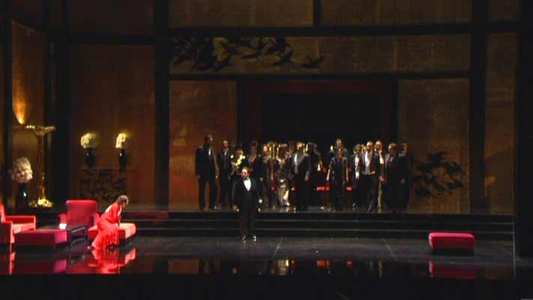
Audio
The DTS sound is very good indeed, perhaps slightly too clear - as it picks up all the squeaks, scrapes and slides from the violins which would normally (I hope) be hidden. There is no balance problem at all between the pit and the stage, and the voices don`t lose power when they`re standing at the back (something some other productions suffer from rather a lot).

Features
Extras consist of some rather meagre soundbites (of varying quality) from the conductor and principals, although it`s very nice to see the great Renato Bruson chat about his role as Germont Snr. Some more revelations as to why the opera was set in Nazi-occupied France would have been nice, not that this was in any way a bad thing.

Conclusion
Any DVD production of this opera is bound to be compared with Solti`s celebrated 1994 Royal Opera House performance, with Angela Gheorghiu singing the role of Violetta (luckily I have this one too), and in many ways, it`s just as good, if not better.
The main advantage over the older production is the immediacy of the sound, helped enormously by the impressive DTS track. Climaxes and imcredibly hushed moments (`Ah! Dite alla giovine` especially) are all catered for without having to alter the volume. Of course, with this clarity comes a few disadvantages, more obvious in the not-so-perfect orchestral entries (very noticeable at the start of `Un dì felice`). Here then, the Royal Opera House orchestra wins hands down.
The rest of the Madrid production bears up very well well indeed. Norah Amsellem (Violetta) is fantastic in the role, and this would have been a near-perfect interpretation, if she had not decided to try for the top E flat at the end of the first act. Gheorghiu wisely opts for the less risky alternative.
José Bros (Alfredo) has a very lyrical tenor voice, and is perhaps a little too lightweight considering the duets he needs to perform with the meatier Ansellem, but when he is on his own there is very little to complain about.
The casting of the legendary Renato Bruson as Germont Snr. seems to have paid off, despite the fact that his voice is now showing his age (he was as least 69 when this was recorded). This man`s forty years experience in opera can be heard in every syllable and is shown in every move. It`s plain the audience was spellbound when he came onstage, and quite rightly too.
Overall, a very satisfying version.
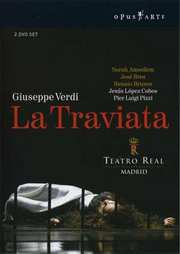
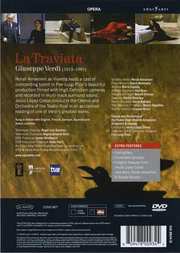
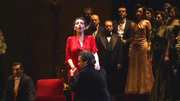

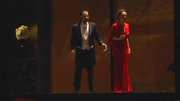




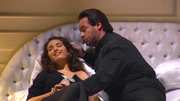
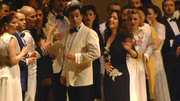
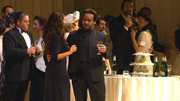

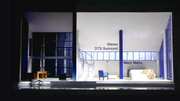































Your Opinions and Comments
Be the first to post a comment!